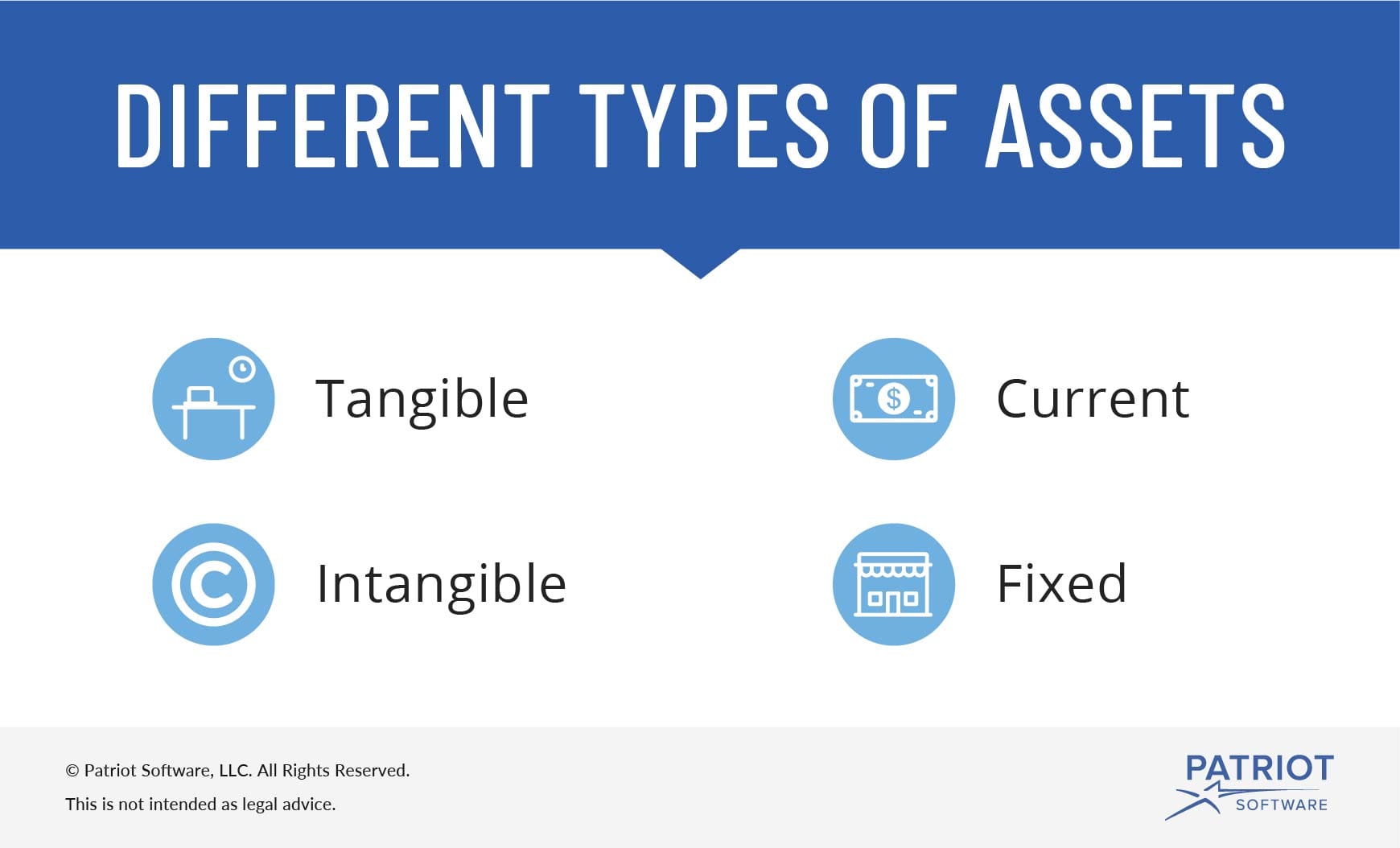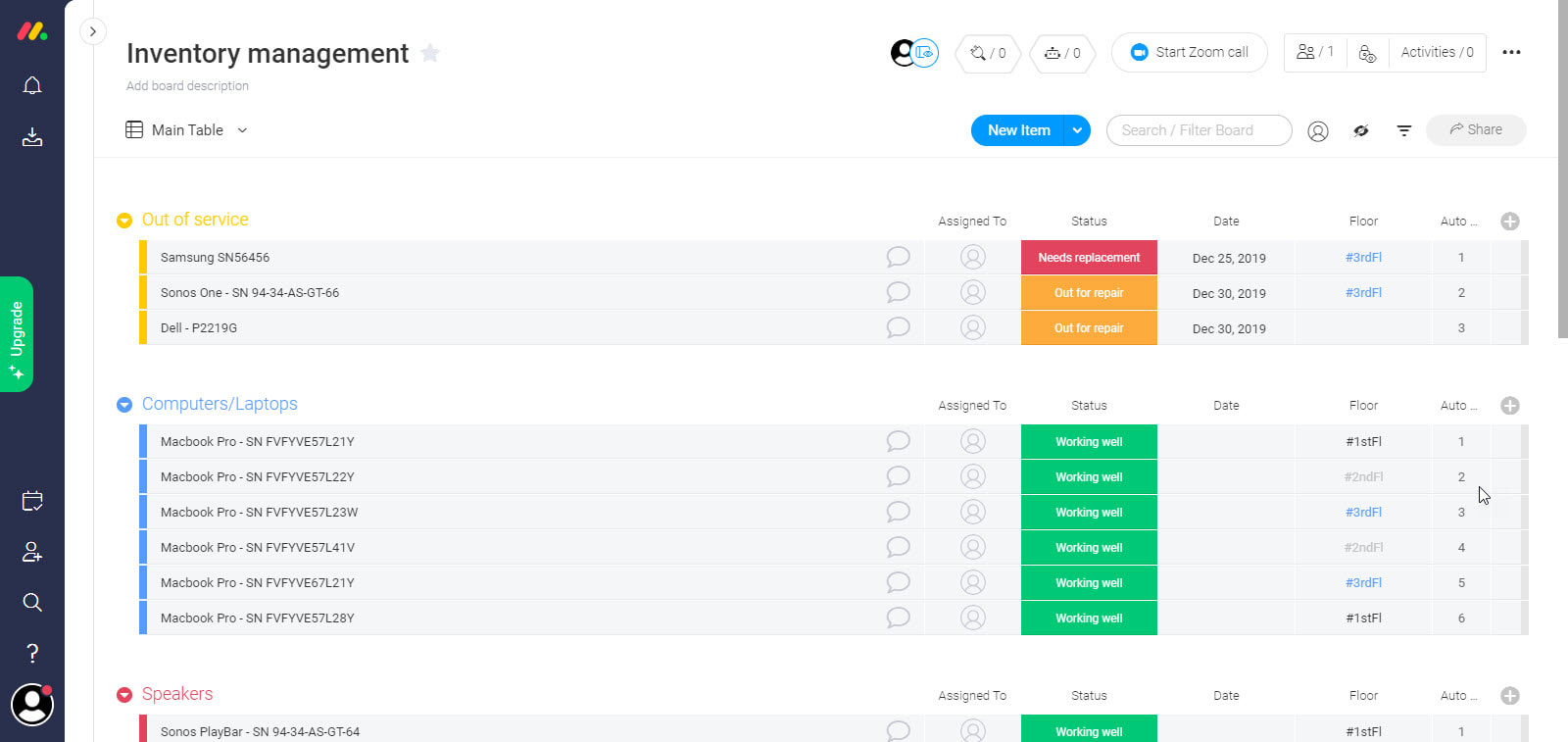Ultra-low interest rates and easy access to investing opportunities have more and more people pursuing investments to capitalize on their assets.
In fact, global assets under management have grown by over 40% in the past 5 years to almost 20x the US Federal budget.
Each day more and more people, families, and companies are seeing the importance of deploying asset management to mitigate risk and increase the performance of their capital and asset portfolios.
In this article, we’ll define asset management, explain why it’s so important, and help you understand how asset managers get more done with tools like monday.com at their disposal.
What is asset management?
Asset management potentially means a lot of different things depending on the types of assets you own or manage.
In simple terms, asset management is a service. One that is often undertaken by a firm or a consultant who manages assets, wealth, or investments on behalf of an individual or company.
More often than not, managing assets or wealth management involves taking investor capital and putting it to work with the hopes of generating further wealth (creating more money).

Assets are categorized into 4 main groups:
- Tangible assets are physical items like inventory, cash, or equipment. Tangible assets depreciate (reduce in value) over time.
- Intangible assets are non-physical items that add value to your business and aren’t easily converted into cash. Some examples include patents, trademarks, and copyrights.
- Current assets are items of value that your business will use or convert to cash in 1 year or less. Current assets are big in the day-to-day operations of a business and are considered short-term investments. Current assets include inventory, cash, and accounts receivable.
- Fixed assets are also known as noncurrent assets, which means they’re long-term assets that bring value to your business anytime after 1 year. A property, car, land, or machinery are such examples.
Each type of asset is an investment in its own right, and an asset manager treats each one differently based on a variety of factors.
An asset management firm takes into account its client’s preferences, risk tolerance, and current circumstances when making investment decisions.
Who practices asset management?
Those who practice asset management are aptly titled asset managers. Sometimes they work alone in private practice, and sometimes they work in an asset management firm. Other times you’ll hear them called a wealth manager or investment manager as well.
Asset managers have a strong understanding of why an asset or investment exists in the first place. They know exactly what condition it’s in and how it’s effectively utilized today.
Often they’ll ensure it’s properly maintained and identify future demands, risk, and possible depreciation. When necessary, they’ll even dispose (get rid of) or sell off an asset.
Asset performance is a strong indicator of an asset manager’s success. Many are shifting their focus to providing a more personalized service offering. This means greater transparency and more frequent communication with clients on how assets are performing.
This is where visually appealing, customizable, and easily shareable asset management boards — like the one below from monday.com — come in handy.

Why is asset management important?
The purpose of asset management is to develop and deploy strategies to increase asset returns and make you more money.
Even savvy individual investors often seek out advice from asset managers and other investors to ensure they’re making the best possible investment decisions.
What makes asset management so lucrative and important is its convenience.
Individuals, families, and organizations with excess capital or assets often don’t have the time, resources, or financial knowledge to keep up with market trends and make the best possible investment decisions for their asset portfolio.
If your portfolio is left on autopilot or completely untouched, there’s a good chance the assets will depreciate quicker than anticipated, and you’ll leave money on the table.
Without asset management, you can expect lackluster returns or even losses on your assets and investments.
With asset management, you receive guidance as to when buying or selling assets is the right choice.
Certified asset managers are legally bound to act in the best interest of their clients at all times and will actively seek ways to mitigate risk and maximize returns on your behalf.
Common asset management questions answered
The asset management process is complex in nature, and those unfamiliar with the terminology, software, and reporting process will likely feel overwhelmed or even lost at times.
With that in mind, we’ve compiled the answers to some of the most common asset management and asset investment questions to help clear things up:
What is digital asset management?
Digital asset management isn’t related to traditional asset management, as its chief purpose is storing digital files like documents, slides, spreadsheets, videos, and other media files.
As a digital asset manager, you’ll need a digital asset management solution to keep track of all the important files that you, your team, and your customer need to make sound investment decisions for your portfolio.

monday.com has digital asset management features built-in, so you always have the files you need at your fingertips.
Since monday.com is cloud-based, you’ll have access to them anywhere and on any computer. That’s also true for mobile devices like your smartphone or tablet.
monday.com supports file uploads from your desktop, Dropbox, Box, OneDrive, and Google Drive. It even allows you to make annotations on image files so you can give feedback to whoever created them.
What does an asset manager do?
Many asset managers have a background and education in finance or accounting. Some are even Certified Public Accountants. They gather data, study the market, and produce reports and statements that detail the status of the individual or company’s assets.
Often they leverage a Work OS like monday.com to keep track of all of their investments in one place.
Having all their data in one platform makes it easy for asset managers to prepare reports and presentations to communicate with stakeholders.

As you can see above, the right board can keep track of asset and investment portfolios, so you and your investor clientele always have the latest information at your disposal.
With the right data, asset managers can guide their client’s decision-making toward mitigating risk and maximizing return. They inform clients of the benefits of buying, selling, or modifying assets.Beyond the day-to-day analysis, reporting, and keeping up with the asset management process, asset managers regularly travel to meet with investor clientele face-to-face.
What sort of tools do asset managers use?
Powerpoint or Google Slides are common for sharing information in a clear and concise manner that clients and stakeholders can easily understand.
The same thing goes for Excel or Google Sheets which make it easy to manipulate data and report on various changes to the asset or market performance.
Beyond the basic tools, asset and investment managers need an all-in-one solution to store their sheets, slides, docs, and keep tabs on every asset under management.
77% of asset managers think data is extremely important for portfolio management. A robust Work OS like monday.com makes it easy to track the various tasks that asset managers perform on a daily basis, keep up with reporting, and effectively manage all data and communications in one place.

Beyond reporting and task management, monday.com has a myriad of other useful features, including:
- 30+ customizable column types that create the perfect workflow for keeping track of all the assets under management.
- 8+ unique data visualizations that ensure all your data is easily accessible and understood by those in the industry and those who need a simple view.
- Unlimited automation recipes that save you from the endless admin tasks that hinder your productivity each day.
- 40+ integrations so all your programs talk to each other, and you spend less time moving data around and more time doing what you do best.
As you can see, monday.com gives you a serious leg up each day through custom workflows, automation, and robust integrations.
With it’s customizable platform and reports, you can get rid of those tedious PowerPoint presentations and spreadsheets that other asset managers are still making do with.
Gaining an edge with monday.com
The field of effective asset management is growing rapidly and with it is the need for a customizable Work OS that keeps your finger on the pulse of every asset under your watch.
monday.com is your ally in the fight against bad data, unnecessary admin work, and poor communication tools.
If you’re ready to take the leap and give monday.com a try, then check out a few of our asset-oriented templates: Fleet Management Template, Investment Portfolio Management Template, & Property Management Template.

